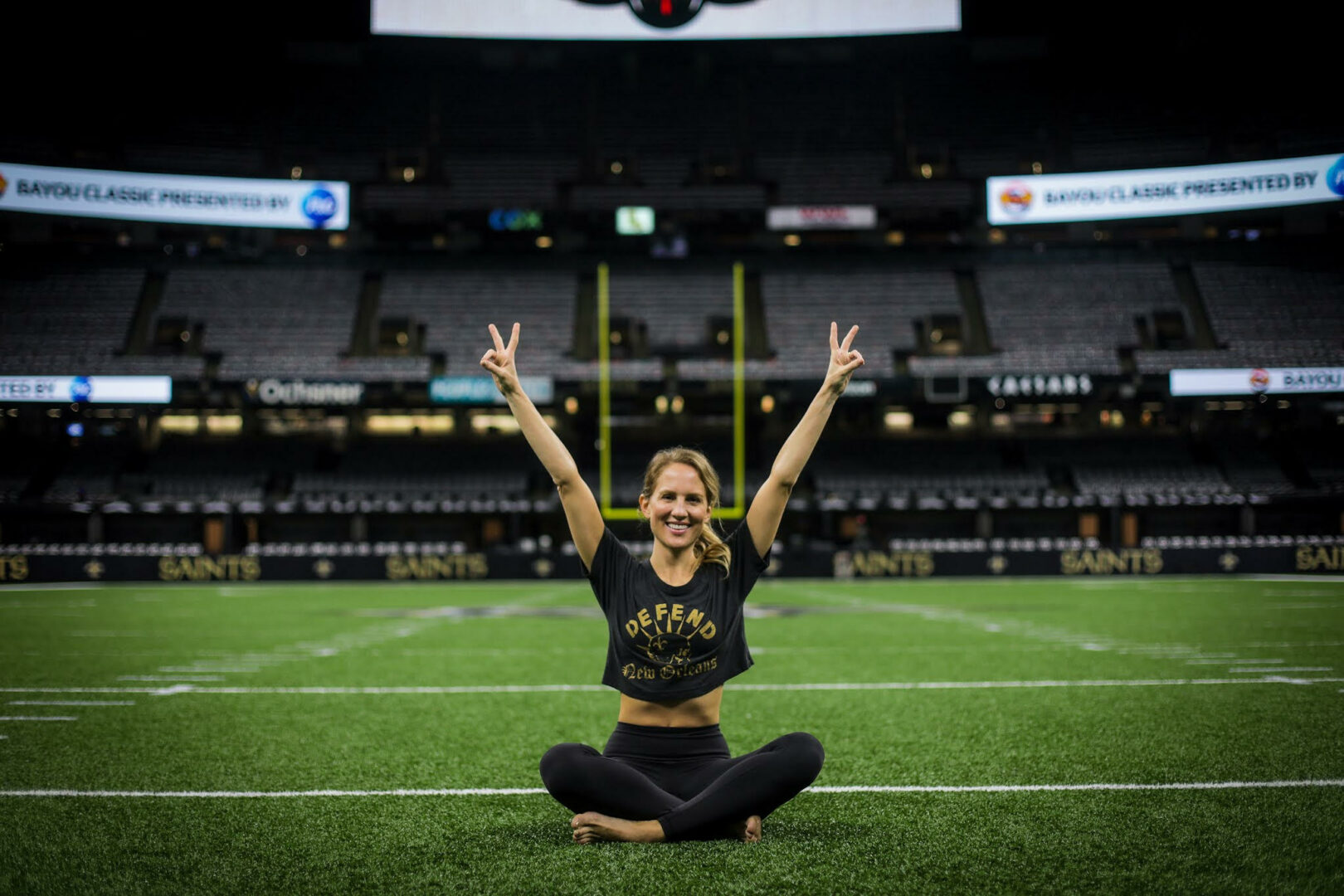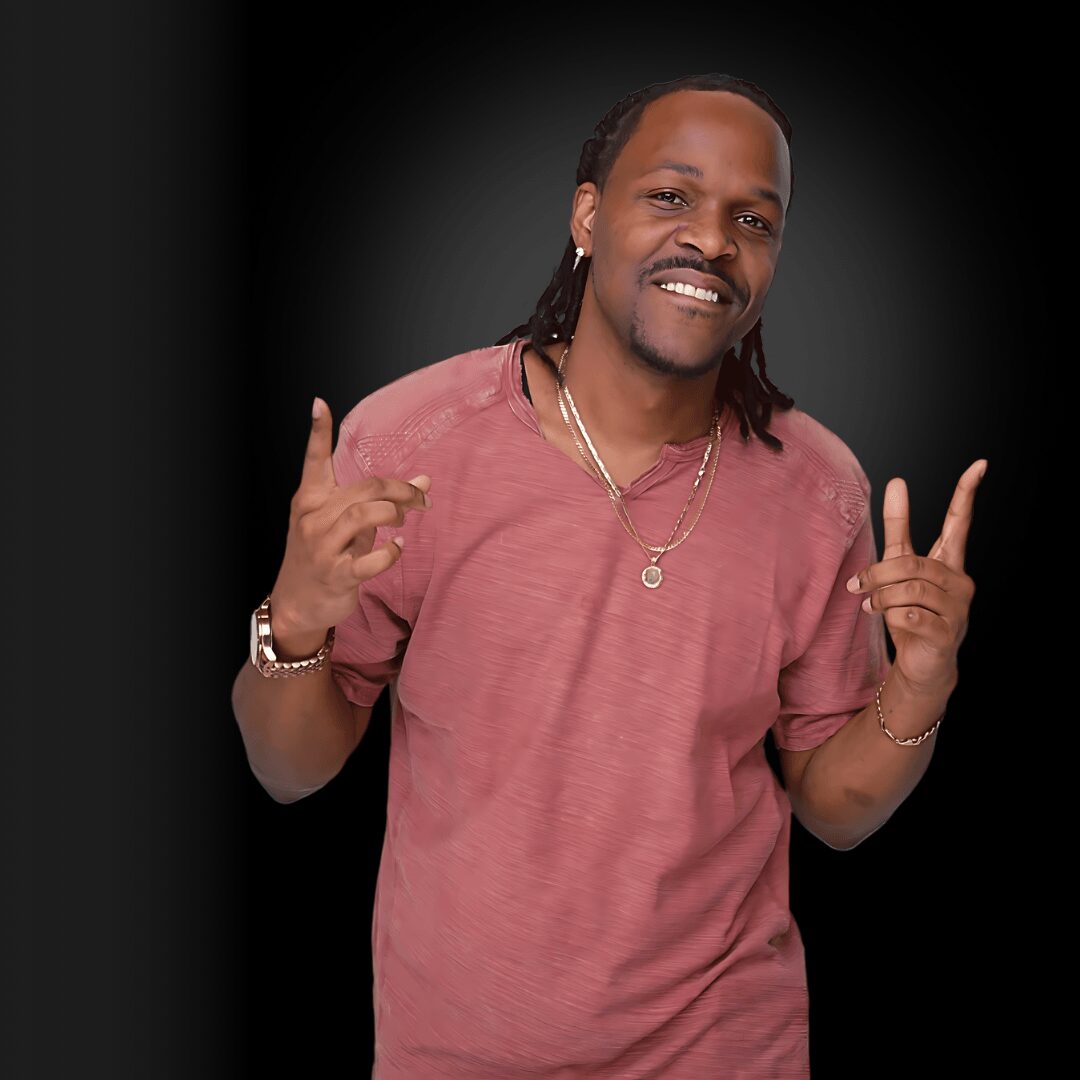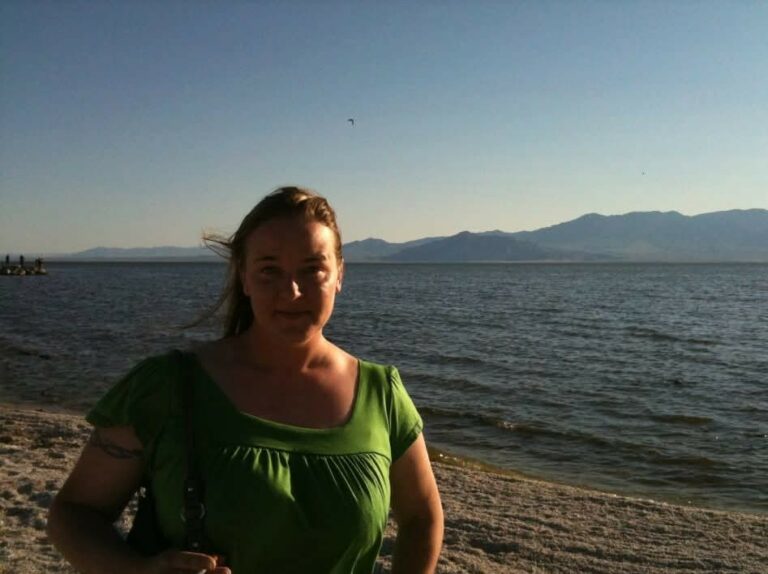Alright – so today we’ve got the honor of introducing you to Chelsea Elizabeth. We think you’ll enjoy our conversation, we’ve shared it below.
Chelsea, we’re so excited for our community to get to know you and learn from your journey and the wisdom you’ve acquired over time. Let’s kick things off with a discussion on self-confidence and self-esteem. How did you develop yours?
I love this question.
Something people have always told me—most often in complementary fashion—is that I’m a confident person. And I am. But before I talk about where this comes from, I want to discuss what confidence even means to me.
When you stand at a fork in the road, what thoughts make your palms slick with sweat and whip your heart into a gallop so that your frontal cortex muddles and you can’t decide: left or right? Or do you calmly assess the pros and cons and make your decision? Decisiveness. That’s what I consider the first tenet of my confidence. Do you trust yourself to decide? And I don’t even mean the “right” decision—any decision.
Because the next step is can you follow through? I don’t have an answer for everything, but based on past experiences, I can usually draw conclusions and predict outcomes. It’s about process, the second tenet of confidence, and trusting that you have the resources in your toolbox to build bridges, patch holes, or set boobytraps (whatever floats your boat).
And while you’re building your bridges or patching your holes or setting your traps, what is everyone else thinking? That might be the worst one of all: what will others think of you? If that stabs fear into your gut just reading, I guarantee you’re not alone. Self-perception is the last tenet, and it’s an essay in itself. I’ll reduce it down to this: do you trust your thoughts about yourself more than you trust others’ thoughts about you? Others who might not know your intentions or your goals or your past…I trust that I know more about myself than others do.
There’s that word again. “Trust.”
Even though decisiveness, process, and self-perception are the three tenets I attribute to confidence, that’s all analytically speaking. What about existentially? It’s “trust” that I hold synonymous with confidence. “Trust” is where all of this comes from.
So, confidence comes from trust in yourself. But how do I trust myself? For me, I prefer to take the time to count the ways I’ve made my own success rather than ruminate on times that I’ve failed myself. That mindset builds me up in my own head: “hey, here’s a person I can rely on to get the job done because she’s done it before, time and time again.” Tell yourself you’re that person! Confidence is your ability to face what’s ahead of you, not necessarily knowing that you’ll succeed…but that you’ll make it through to the other side no matter what ups and downs you encounter along the way. And, truly, if you pick yourself up again after a setback, you never really end up failing yourself, do you? It’s a state of mind, a complete mental framework of perceiving yourself and what you do in either a positive light or in shadow. Sometimes, the tasks ahead of us are pretty bleak, and that’s out of our control; what is in our control is how we can trust ourselves to tackle it and move forward in the best way possible.
I’m a novelist, so it’s only natural I compare this to a hero’s journey. Yes, the hero’s journey. Because you’re not any other character archetype in the story of your life! You are your story’s hero, like it or not. So when you’re reading a story or watching a movie, you know the hero is going to face adversity, struggle—or sometimes even fail—and eventually overcome their challenge or enemy. Life isn’t exactly that linear, but stories are a microcosm for our lives; in this way, you can expect yourself to encounter bumps in the road. What is up to you is if you trust yourself—if you have the confidence—to keep going.
A lot of the time, confidence comes down to tenacity, trusting your decisions, process, and self-perception just enough to not let yourself quit. Once in a while, confidence is letting yourself quit or letting yourself fail. Maybe you don’t know the right decision. Maybe you don’t have the experience to get through the process. Maybe people will see you as a failure. I think that’s the hardest type of confidence, and that’s what my current book is about: fear of failure and how even people who know success and perfection can also have that niggling black hole in their hearts telling them they can’t fail.
That’s my story.
A good deal of my confidence growing up came from the good luck of being good at a lot of things. I wasn’t familiar with failure, early on, so I didn’t consider it a possibility. People don’t like to hear that, so let’s talk more about how I keep my confidence as an adult who faces adult problems: work-life balance, sickness, workplace chaos, apartment flooding, professional rejection (I’m a querying writer. Rejection is all I know right now). Y’all, it’s been a year.
Over the years, it hasn’t been a question of “how did I develop my confidence,” but “how did I keep my confidence?” Bring it back to the basics: decisiveness, process, self-perception. Work on them every day and don’t let them rust. Look yourself in the mirror and decide you’re going to crush it. Brush yourself off after a fall and tell yourself falling is okay and figure out what you learned from it—not so that you won’t fall again, but so you can get up again. Because you will fall. You’ll get pushed down.
You’ll also stand taller when you rise.
Let’s take a small detour – maybe you can share a bit about yourself before we dive back into some of the other questions we had for you?
By trade, I’m a Doctor of Physical Therapy. I know—it’s about as far from being a novelist as you can get, but I have a way of making everything about books and writing. That’s how I ended up starting my Character Injury Blog and Consultation Services. Almost 100% of the medical content I read and see on TV is horribly incorrect. Most people who don’t work in medicine notice it, too. So why is it acceptable? That’s like your main character being an accountant and saying 2 + 2 = 9.
I combined my knowledge in sports medicine and the medical field at large with my passion for story in my Character Injury Blog; I discuss how to maim your character properly, how to accurately depict conditions and ailments, and (most importantly) how to properly represent sensitive medical content in your writing. For more tailored advice, I have my bespoke Consultation Services and Sensitivity Reading for writers who want guidance specific to their writing. I love taking into account each writer’s different goals, writing style, and the story’s and genre’s overall needs. Think medicine in fantasy is simply fixed with magic? Think again! One of my favorite blog posts is about how fantasy isn’t the exception to the “medical accuracy rule,” but the reason for it.
But my brand doesn’t end there! I’m also a newly minted audiobook narrator, which has taught me a lot about writing craft. It’s a fun side gig that I’m hoping to cultivate further. One of my favorite parts of it is narrating short snippets of my Instagram followers’ books that they can then turn into reels or mini book trailers!
And then there’s writing! I’m a historical fantasy writer at heart, but I’m currently seeking representation for publication of a Young Adult Sports Romance (that’s the “fear of failure” book I mentioned previously). I’m in the querying process now. However, one of my other projects is already out in the world to read. TRINITY is a New Adult Paranormal Romance inspired by a cursed game of Marry, Kiss, Kill. It’s currently available on Kindle Vella, but not for much longer! I have big plans for it coming up…
Looking back, what do you think were the three qualities, skills, or areas of knowledge that were most impactful in your journey? What advice do you have for folks who are early in their journey in terms of how they can best develop or improve on these?
I will always assert that confidence has been one of the biggest impacts in my journey. I’ve never lacked in it, and it’s just something I’ve been blessed with, but as I discussed before: it’s hard to keep around when you’re a creative. The writing world—and any creative world, I’m sure—is so subjective. If your query or book proposal lands on a literary agent’s desk before they’ve had their morning coffee…well, that might be it for you and your art. Just because of chance.
Coming from a background in science and medicine; there’s always a right or wrong answer. You don’t have that in the creative field. The subjectiveness can really be a downer. So, the knowledge that this is a subjective industry has been huge for my confidence, perseverance, and understanding, as a whole.
Speaking of perseverance…that’s another one. I talked about tenacity before, and I think tenacity is just the stubborn—or even the spiteful—side of perseverance. No one gets to tell my art ‘no.’ Doesn’t that just sound ridiculous? If the way I feel about my writing is a wholehearted ‘yes,’ then I’m going to keep going until I find my publishing ‘yes.’ It’s that simple to me.
The third thing for me would be understanding your industry, and this encompasses a lot. It’s picking out trends and following news. It’s networking and marketing. It’s building your craft and workshops. The more knowledgeable you can be in your field, the better you’ll do. After all, they do say knowledge is power, right?
What would you advise – going all in on your strengths or investing on areas where you aren’t as strong to be more well-rounded?
I don’t like to think of anything in terms of strengths and weaknesses because that implies I have “weaknesses.” I know—what an enneagram 8, Scorpio thing to say! For me, I have fallen in love with “diversifying my craft.”
My writing journey started with writing historical fantasies. That’s all I wrote for my first 10 or more years. I was great at worldbuilding and plot and action. But everything started to feel the same. Then, after college, I had inspiration to write a dystopian novel, and as I drafted it, I found that it challenged me to write a more literary-leaning story with deep prose and lush line-level writing. These were things I hadn’t focused on before in my punchy, plot-based fantasies.
When I wrote my next historical fantasy, it was still an action-packed, plot-driven story, but the prose had reached a new level. My writing had reached a new level.
It happened again a couple of books later, when the idea for a Sports Romance hit me (yup—that “fear of failure” book again!). I was a speculative fiction writer! I had no business writing a Young Adult Contemporary Sports Romance novel. But I did. And you wouldn’t believe what growth it resulted in. My character development and emotional depth took huge leaps in understanding. Now, those augmented skills sit just a bit taller in my writing skills toolbox.
But it isn’t just diversification of writing. Sure, drafting novels outside my normal genre and age categories has been productive. But other hobbies have grown my skillset, too.
In the past year, I started narrating audiobooks, and let me tell you: that has been a masterclass, in itself. Not an audiobook masterclass—no, a writing masterclass! I have gleaned so much understanding about writing craft from narrating books. Word choice, sentence structure, alliteration, tone, voice, pacing…it all shines under a different light when you’re narrating versus writing. It’s still early, but going forward, I think my writing is getting cleaner and smarter!
In the past few years, I’ve leaned into diversifying my craft pretty heavily, but not at the cost of writing, itself. It’s sometimes a struggle to find the time to write and pursue that dream, but diversifying my craft won’t help me much if I’m not putting it to use in my writing. In the long run, I think it will give me the tools for longevity and a sustainable career in an industry where the burn out rate is high. It’s not just about developing my career: it’s about protecting it.
Contact Info:
- Website: bychelseaelizabeth.com
- Instagram: @bychelseaelizabeth
- Other: Blog: bychelseaelizabeth.com/blog Consultation Services: bychelseaelizabeth.com/consultations






Image Credits
TRINITY graphics by Briana H. Louis




